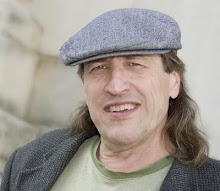Any film that deals with its own medium of film must ask the question of what is real and not real, and the film Super 8 with its focus on young filmmakers is more than a little complicated when it comes to this.
On every level, Super 8 is about death and resurrection, and this is also true when it comes to the process of filmmaking.
The group of kids is in the process of making a zombie movie, something that has been going on prior to the opening of the film, and the director/writer, Charles, is concerned about losing Joe – who does makeup and other behind the scenes roles for the film – because Joe’s mother has passed away.
“I bet Joe is not going to want to do my movie any more,” Charles said as he and his friends hover over the food table at the wake.
“Why?” asks Gary
“Why do you think why? The story, it’s about the living dead.”
“His mother’s not a zombie.”
“She’s dead, shit head.”
Charles and the others are obsessed with getting the film done, something that not everybody understands.
Joe’s father, Jackson, wants his son to go off to baseball camp if only to get him away from the zombie makeup, not that he dislikes the kids, it’s just… well, things have changed for the family now, and Joe’s mother, Elizabeth is dead.
The camera literally takes on a life of its own for this film, becoming its own character, seeing things that the characters of flesh and blood do not – such as when it continued to run at the train station even when a derailed train disrupts the shoot and sends the actors and crew scrambling for their lives.
It is the camera that catches the image of the alien escaping the train after the crash, a kind of resurrection of the dead after the alien has been held captive in a tomb-like military science lab for more than two decades.
In a film in which everything is about resurrection and returning to life, even the camera must play a role, broken at the train station, another camera takes its place when Joe borrows his father’s.
So the fact that the three day wait for developing the film wreck footage takes on new meaning, yet one more allusion to resurrection.
Joe’s mother is resurrected in one scene when the power comes on suddenly and the home movie made of her and him as a baby starts up again.
Joe tells Alice that his mother was always looking at him – the way a camera might, perhaps, the way the alien in the concluding scene does, taking everything in, making it all real.
The camera becomes the witness to what is real. The train crash doesn’t become real until the kids see it on TV.
Charles is constantly rewriting his script in order to find the heart and soul of it, even when he has great scenes like the death of a zombie.
But the death scene is not a story and since older boys are going to be entering the film competition, Charles writes in a love interest for his main character – although this borders on reality, too, since Charles invited Alice to do the role because he’s romantically interested in her.
She proves to be a remarkable actress, but also a disappointment since she falls for Joe instead.
This causes Charles to become disillusioned with the film, since what he wanted to become real did not, at least not for him.
Charles as artist is struggling to make his work become more and more real – seeking scenes with “production value” such as ones that use the backdrop of the train wreck or the military searching the house of their biology teacher.
Ownership of this reality also comes into question when Joe’s father, Jackson, takes back the camera Joe took to continue the movie, and Charles complains that while the camera might belong to Jackson, the film – the images, and content, belongs to Charles.
Film also becomes evidence against the military when it comes to the captivity of the aliens, as the military searches for the biology teacher’s research that includes reels from secret experiments in the early 1960s, films that show him being touched by the alien.
Still later, the clip of the alien slipping off the train because evidence for Joe’s father, Jackson, when he begins his search to find Joe, who the military had captured.
Real and unreal are blending into something nobody is completely comfortable with, just the way the boundary between living and dead gets blurred by the idea of zombies and the living dead.
This film with its internal filmmaking process because of search for reality, for the boundaries of life itself, as the lens captures images of something that may or may not be real, and gives evidence to the horror of not knowing where one ends and the other begins.
Subscribe to:
Post Comments (Atom)









No comments:
Post a Comment